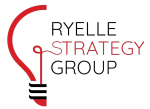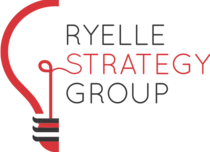The Critical Role Knowledge Management Can Play in Employee Engagement
By: Ryelle Strategy Group
In today’s workforce, we often see the challenges that stem from siloed work practices—work can be duplicated or critical knowledge lost when someone leaves the organization.
If you’re not familiar with the concept of knowledge management, you may be surprised to realize that aspects of it already exist in some organizational procedures, such as in training, onboarding, documentation of work processes, and decision-making practices. However, many of these processes are still not standardized and anchored in a broader knowledge management strategy across entire organizations, leading to gaps in performance and a lack of sustainability when an employee leaves or priorities shift.
In simple terms, knowledge management is how an organization captures and manages its knowledge and expertise and shares these resources with individual employees and teams, likely in a digital location. When practiced effectively, it embeds an ethos of transparency, learning, and collaboration in an organization’s day-to-day operations and performance over time. Effective knowledge management can help organizations improve productivity, innovation, and decision-making.
Why knowledge mobilization matters in organizations today
Long gone are the days when work was simply about completing tasks. With professionals looking for authenticity in their company culture and a clear path for their professional development to be just as much a part of their work experience, work culture must increasingly consider how learning can enhance the employee experience. Building a culture that promotes knowledge sharing and ongoing learning is a foundational necessity that every organization must prioritize to remain competitive in today’s market.
Knowledge mobilization can play a key role in employee engagement, one that fulfills employees’ growing desire for a supportive workplace culture. Implementing knowledge management practices can bring several benefits to an organization, including improving operational efficiency, reducing costs by enabling employees to quickly access solutions and avoid lost productivity, and grounding decision-making in lessons learned over time. In turn, this can lead to superior employee experience and higher quality outcomes. Knowledge management also helps optimize support resources and employee productivity, reducing duplication of effort and minimizing the impact of staff turnover.
The benefits of knowledge management
Knowledge management plays a significant role in:
- Increasing efficiency and boosting productivity by giving all employees access to essential information.
- Improving decision-making processes with awareness of past experiences and best practices.
- Ensuring that institutional knowledge is not lost when employees leave the organization.
- Promoting innovation and collaboration amongst employees, teams, and departments.
- Enhancing employee engagement and satisfaction through continuous growth and learning opportunities.
- Creating a digital repository of knowledge and best practices accessible to all employees.
How to create a culture of learning in your organization
As we navigate the challenges of building an effective and efficient post-pandemic workforce, organizations are looking to attract and retain top talent who will contribute to sustainable growth and success. Within the consideration of employee retention lies the important factor of how organizations can create a workplace culture that makes employees feel valued for their contributions and more committed to the work they’re doing.
Promoting a culture of learning and knowledge sharing creates an environment where employees feel comfortable, free, and encouraged to share ideas, experiences, and emerging trends or best practices they’ve come across. Learning can take several different forms, such as mentorship and coaching programs, job shadowing, upskilling, and virtual or in-person development workshops, aided by shared information hubs, libraries, and open communication channels. This simple act of encouraging employees to connect with each other—within teams or across different departments to eliminate silos—can pave the way for a culture of innovation and continuous improvement of an organization’s programs, processes, or services.
To facilitate effective knowledge sharing, organizations can develop training and development programs to equip employees with the skills needed to transfer and share knowledge efficiently, such as effective communication and collaboration skills and targeted knowledge management training. By making employees an essential and valued part of the process, they are more likely to feel personally invested in the success of the organization.
Implement a knowledge management strategy today
By instituting a system for knowledge management and mobilization in your organization, you can cultivate more engaged teams and create an authentic culture of learning. By doing so, your organization can achieve sustainable growth and make significant strides towards attaining your goals. Knowledge management systems are effective tools for capturing vital institutional information that helps current employees perform their jobs and makes it easier for new employees to get up to speed.
Ryelle’s People, Culture, and Capacity services empower your organization to revolutionize knowledge management. Our expert team assesses your current state of knowledge management, identifies the gaps, and delivers tailored recommendations. We then develop a comprehensive roadmap for implementation that aligns with your core capabilities and goals. Our ongoing support ensures that your new knowledge management system is effective, optimized, and future-ready. Book a no-cost discovery session to learn more.


